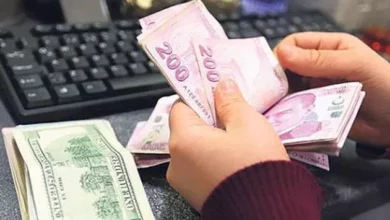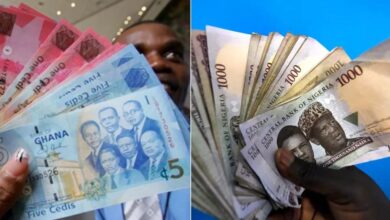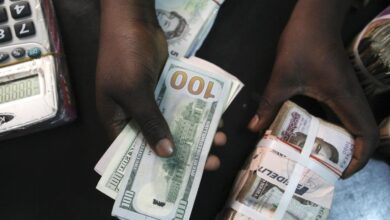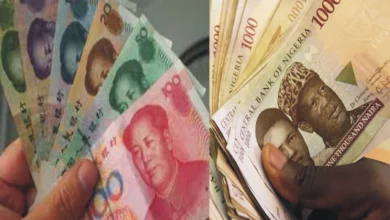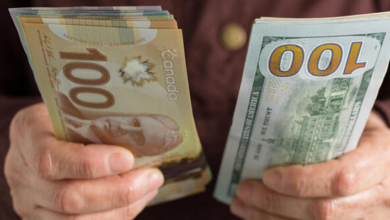West African CFA Franc (XOF) To Naira Official and Black Market Exchange Rate Today
What is West African CFA Franc (XOF) To Naira Official and Black Market Exchange Rate Today?
The current rate of exchange for CFA francs to Naira is unfavorable, particularly for Nigerians who live in close proximity to the border between their country and the Benin Republic and for Nigerian merchants that do business with countries that use the CFA currency.
To paraphrase what someone else has said, “we are now using the money to buy two cars as one.”
Because the majority of people only buy there because of the cheaper rate they receive things at due to the exchange rate then, this on its own had the effect of reducing the amount of trade that occurred between the two countries.
The only group of persons who stand to benefit from this are those who sell their products in the Benin Republic.
The cost of living for persons who live in the border region between Nigeria and Benin Republic has increased as a result of this.
The devaluation of the Naira will only assist in maintaining the value of the CFA, which is the legal tender in these countries along the border.
Because the value of the Naira has increased from about ₦210 to
₦725, the rate at which CFA is exchanged for Naira has risen.
West African CFA Franc To Naira Black Market Exchange
The following details the current rates offered by Bureau de Change (BDC) operators for selling and purchasing West African CFA francs in exchange for Naira on the parallel market (also known as the unofficial or black market).
Buy Rate: ₦725
Sell Rate: ₦775
10 Interesting Facts About The West African CFA Franc
Concerning CFA, there is various interesting information. The CFA franc is the official currency of eight of West Africa’s sovereign nations, including Burkina Faso, Guinea Bissau, the Ivory Coast, Mali, Niger, Senegal, Togo, and Benin.
They are located in West Africa, and there are more than 120 million people if we combine the populations of these eight countries.
The name of the currency refers to either the Financial Community of Africa (also known as Communauté Financière d’ Afrique) or Communauté Financière Africaine (also known as CFA) (African Financial Community).
At the moment, one CFA dollar can be exchanged for one Euro at a set exchange rate. Moving forward, before we discuss the interesting facts about the CFA, let’s take a look at a brief review on the history of this currency, which is used by around 120 million people in West Africa. This currency is the Central African Franc.
CeFA was established on December 26, 1945, shortly after World War II and during a period of time when the French franc was in a period of weakness. A stable exchange rate between the French franc and the US dollar required the devaluation of the French currency.
It was criticized on the basis that it was too high despite the values of the CFA franc, and it was said to have favoured the elites of the African countries. It was created with a fixed exchange rate, but it was just changed twice.
It was well known that the elites had the ability to purchase imported and manufactured goods at reduced prices, which came at the expense of farmers who were unable to easily export agricultural products.
As a result, there was a devaluation in the year 1994, which was also an attempt to reduce imbalances in the economy. We have not spent much time discussing the CFA, which, for the most part, refers to the money used in the Benin Republic.
We can now continue the most important part of this article, which will include the most interesting facts about the CFA that you are likely not aware of.
- There are two distinct currencies that each go by the name “CFA franc.” We have the CFA franc of West Africa, which is ISO 4217 and has the currency code of XOF. We also have the CFA franc of Central Africa, which is ISO 4217 and has the currency code of XAF.
The meaning of each of their names is what sets them apart from one another in French.
- Are you aware that the Central African CFA franc cannot be used in West African countries, and that the West African CFA franc cannot be used in Central African countries? Both of these restrictions apply to the CFA franc.
- CFA stands for Communauté Financière d’Afrique (Financial Community of Africa) or Communauté Financière Africaine.
The West African CFA franc, also known as the French franc CFA, is the currency used in West African countries that use the French language (Africa Financial Community).
- There are mainly eight countries in West Africa that use the CFA currency. These countries are Benin, the Ivory Coast, Mali, Niger, Senegal, Burkina Faso, and Togo. Guinea Bissau is also included in this group.
- Between the years 1945 and 1958, the acronym CFA stood for colonies Francaise d’Afrique (also known as French Colonies of Africa). After that, the acronym changed its name to Communauté Francaise d’Afrique (also known as the French Community of Africa).
- Do you know that since independence in those countries using the CFA, the CFA has adopted a new meaning known as the Communauté Financière Africaine (African Financial community)? If you do, then you should also know that the terms can have two different meanings.
- There were just two times that the exchange rate for the CFA franc was changed, and those were in the years 1948 and 1994.
- The Canadian Federation of Agriculture (CFA) was established on December 26th, 1945. Also, we feel that it is important for you to be aware that the letters BCEAO stand for Banque Centrale dès États de l’Afrique du Qu’est.
- It is important to note that all other countries in the region, except for Mali, which was formerly a part of French Sudan, were able to replace their currency with their version of the franc in 1961. However, they eventually switched back to using the CFA franc BCEAO in 1984.
- Do you know that in 1994, the country of Guinea Bissau, which had once been a colony of Portugal, adopted the currency?
Why Does Naira Lose Value Compare to The Cefa?
The question “how much is one cefa to one naira on the black market today?” is a common one that is asked regularly.
The response to this question has alarmed many people because the value of the cefa has increased in comparison to that of the Naira.
The following are some of the factors that have contributed to these issues:
The Fluctuation Of The Nigerian Naira Compared To The US Dollar
It should not come as a surprise that the value of the dollar concerning a currency will affect that currency’s relation to other exchange currencies.
The strengthening of the CFA franc is supported by the devaluation of the naira relative to the dollar.
This is because the Financial communities have put in place appropriate rules to ensure the stability of the currency in the context of the global market.
If the value of the Naira can be established in international financial markets, then the CFA will face competition from another currency.
When it comes to the administration of monetary policies across the nation, the Central Bank of Nigeria ought to operate in a manner that is both open and informed.
High Importation Rate
The Benin Republic’s port is considered to be the most important one for the trade of used vehicles in all of West Africa.
Because an increasing number of Nigerians continue to buy goods from Cotonou despite there being no exports to show for it, a significant amount of revenue has been generated via the use of this channel.
The recent prohibition on importing goods such as auto miles has caused concern among the customs officials in these nations due to the devaluation that this would bring about in their currencies.
Despite this, the large importation of rice and cars that the Nigerian government has prohibited has not been stopped as a result of this embargo.
Regularly, shoppers from Nigerians are interested in purchasing second-hand apparel such as clothing, shoes, and bags, in addition to toys. This act would assist in lowering the value of the Naira and boosting the GDP of the countries located in West Africa.
The value of the Naira can only go up once exportation begins to take place across numerous borders.
Poor Governance
Everything comes down to the kind of government that is in place in Nigeria. If the system can facilitate increased financial activity, the CFA franc to the Naira exchange rate will strengthen.
Unfortunately, these policies on the type of goods that should be imported and those that shouldn’t are being implemented, and as a result, the masses are left to suffer at the hands of corrupt leaders.
Policies have been laid out on the type of goods that should be imported and those that shouldn’t.
Due to a lack of available goods and services, as well as an increase in the prices of locally produced commodities, there will be an increased demand for imported equivalents, which are easily accessible in West African nations.
Poor Education System
The Benin Republic has a significant competitive edge over Nigeria due to the difficulty of gaining entry into the country’s higher education institutions.
The majority of young people in the world travel to these nations to further their education because the procedures for admission are easier there while at the same time quality education is provided.
The allocation of resources to the education sector in these nations could contribute to an increase in the value of the CFA franc, which would come at the price of the Naira.
West African CFA Franc (XOF) To Naira Exchange Rate Frequently Asked Questions
How much is the CFA to the Naira exchange rate on the black market?
West African CFA Franc to Nigerian Naira Exchange Rate on the black market is:
Buy Rate: ₦725
Sell Rate: ₦775
How much is a 100 franc coin worth in naira?
100 Franc coins give you 87.174600 Nigerian Naira.
Which other currency is lower than the Nigerian currency?
One of the African currencies that is weaker than the Nigerian currency is the Uganda shilling.
Conclusion
It is no longer surprising that most countries do not value the Naira as a currency because the strength of Nigeria’s legal tender has diminished over the years.
